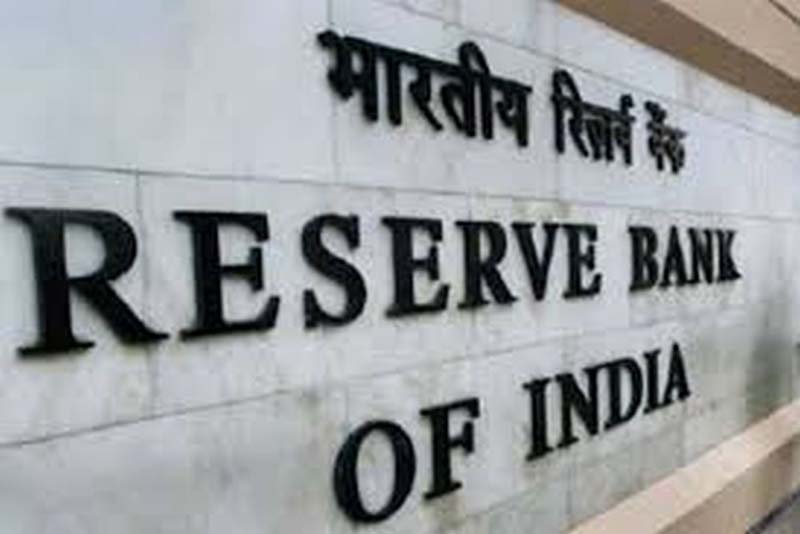NEW DELHI, Sep 24: The Reserve Bank is likely to maintain status quo on policy rates for the fourth time in a row at its bi-monthly monetary policy review meeting early next month, as retail inflation continues to remain high and the US Federal Reserve has decided to keep a hawkish stance for some more time, according to experts.
The Reserve Bank had raised the benchmark repo rate to 6.5 per cent on February 8, 2023 and since then it has retained the rates at the same level in view of the stubbornly high retail inflation and certain global factors including elevated crude oil prices in the international market.
The Reserve Bank Governor-headed six-member Monetary Policy Committee (MPC) meeting is scheduled for October 4-6, 2023. The last meeting of the MPC, the highest rating-setting panel, was in August.
“We do expect the RBI to hold on to a status quo position this time as inflation is still high and liquidity tight. In fact, going by RBI forecast on inflation, it would be above 5 per cent in Q3 too, which will ensure that the status quo prevails for the calendar year for sure and probably Q4 too,” said Madan Sabnavis, Chief Economist, Bank of Baroda.
Sabnavis further said there are uncertainties relating to Kharif crop, especially on pulses, which can increase prices.
“The comfort is that there is less concern on growth which is on target,” he added.
Although the Consumer Price Index (CPI)-based retail inflation eased a bit to 6.83 per cent in August from 7.44 per cent in the preceding month in July, it remained above the Reserve Bank’s comfort level of 6 per cent.
It may be mentioned that the government has mandated the RBI to keep inflation at 4 per cent with 2 per cent margin on either side.
Aditi Nayar, Chief Economist, ICRA Limited said the headline CPI inflation is expected to ease to 5.3-5.5 per cent in September 2023 from 6.8 per cent in August 2023, benefitting from the halving of the average price of tomatoes as well as a favourable base.
“… We expect the CPI inflation to ease to 5.6 per cent in Q3 FY2024 and further to 5.1 per cent in Q4 FY2024, amid upside risks to food inflation on account of the impact of uneven and sub-par monsoons and low reservoir levels on Kharif yields and Rabi sowing, respectively,” she said.
Nayar said ICRA expects the MPC to remain on hold in October 2023 policy, while continuing to demonstrate caution amid a cloudy outlook for food inflation and elevated crude oil prices.
The Reserve Bank has projected CPI inflation at 5.4 per cent for 2023-24, with Q2 at 6.2 per cent, Q3 at 5.7 per cent and Q4 at 5.2 per cent, with risks evenly balanced. CPI inflation for Q1, 2024-25 is projected at 5.2 per cent.
On his expectations from the next bi-monthly monetary policy, Sanjay Bhutani, Director, Medical Technology Association of India (MTaI) said the RBI has gone along with the market sentiment of retaining the benchmark interest rate at 6.5 per cent for quite some time now.
However, it’s time for the central bank to contemplate a reduction of the interest rate with the objective of boosting growth, he said.
“…If that is not possible in view of high retail inflation and the hawkish stance of the Federal Reserve, the medical technology sector, which is reeling under the burden of high debt, does expect the RBI to continue with the pause and at the same time provide some firm indication of easing rates in the near future,” Bhutani opined.
Sandeep Bagla, CEO, Trust Mutual Fund was of the opinion that the environment for interest rates has worsened considerably from MPC’s last policy review in August. In the US and in India, the economy has shown resilient growth, and inflation numbers have risen beyond comfort levels.
“While food prices have softened, crude oil prices have climbed up, thereby raising inflationary expectations as evidenced by sharp rise in US treasury yields. The MPC will consider all these factors and maintain status quo on repo rates, as headline inflation is expected to come down in the coming months,” he said.
The Reserve Bank mainly factors in the CPI-based inflation while arriving at its bi-monthly monetary policy.
The borrowing cost which started rising in May last year has stabilised with RBI keeping the repo rate unchanged at 6.5 per cent since February, when it was raised from 6.25 per cent. Later in the next three bi-monthly policy reviews in April, June and August the benchmark rate was retained.
The MPC consists of three external members and three officials of the RBI. The external members on the panel are Shashanka Bhide, Ashima Goyal, and Jayanth R Varma. Besides Governor Das, the other RBI officials in MPC are Rajiv Ranjan (Executive Director) and Michael Debabrata Patra (Deputy Governor). (PTI)


